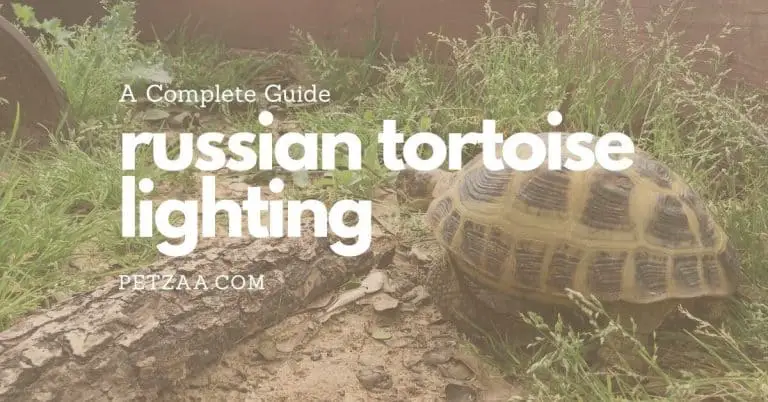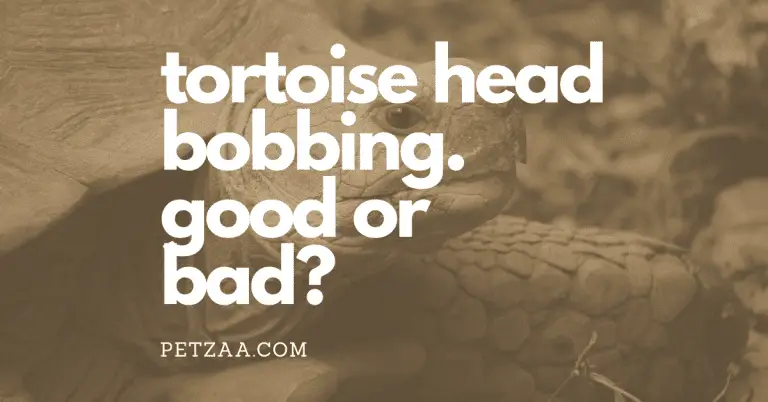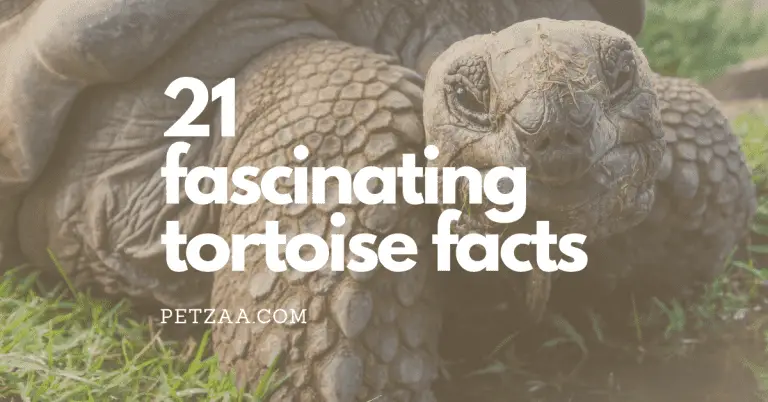6 Reasons Why Tortoises Squeak, Croak, and Quack? [Tips]
Tortoises squeak for six reasons, nares (nose) debris, overgrown beaks, startled response, male mating, environmental issues, and respiratory infections.
The first time I heard a tortoise squeak, my mind immediately worried about a respiratory infection.
Thankfully, there are many reasons why tortoises squeak. In a review of self-reported cases, we found that 21.4% of 42 reports ended up being a respiratory infection. 52.3% were solved by increasing humidity or temperatures. The remainder of the reports were attributed to other factors.
![6 Reasons Why Tortoises Squeak, Croak, and Quack? [Tips] 1 why does my tortoise squeak and quack](https://cdn-0.903pets.com/ifywhoft/2021/02/Why-Is-My-Tortoise-Squeaking-tiny.png)
Let’s look at the reasons our exotic pet tortoises squeak in more detail.
Help! My Tortoise Is Squeaking. Should I worry?
Tortoises do make many noises. A squeak or quacking sound is not unusual and does not necessarily mean there is impending doom for your tortoise.
In order to know the seriousness of the condition, it is vital to understand which of the many causes are involved.
As always, if you have concerns about the sounds, take your tortoise to a reputable vet to get the best care and treatment for them.
A squeaking sound from your tortoise should not make you immediately worry or become anxious.
Let’s review the six most common causes of a squeaking tortoise.
1. Nares or Nose Squeaks
One cause of squeaking or quacking sounds in a tortoise is debris in the nares (nose).
An inhaled bit of debris from dry substrate can cause strange sounds when the tortoise inhales or exhales. Sometimes the sound is described as a whistle or squeak.
The sound is made by the airflow restriction through the nares and should clear itself in 24 hours. If not, you may want to seek a veterinarian’s advice.
We’ve even seen some reports from tortoise owners that this is a normal sound for their tortoise. They explain that the nares of the tortoise are smaller than typical and cause a whistling or squeaky sound when they inhale sharply.
We would suggest that your tortoise see a vet for any sounds that are a repeating part of the regular breathing cycle. This is not normal.
Solution: If it does not pass in 24-48 hours, see the vet to be doubly sure.
2. Overgrown Beak Squeak
Believe it or not, an overgrown beak can cause squeaking and quaking noises in a tortoise. More commonly it may sound like a click.
When a tortoise beak is overgrown, it may rub against the bottom part of its mouth. The rubbing may cause the squeak or click sound.
Typically the beak needs trimming if it begins to touch or grow past the chin. Your vet can do this quickly and easily.
Solution: Make an appointment with the vet to have your tortoises beak trimmed. As a preventative, keep a aviary cuttlefish bone in the enclosure. Also feed your tortoise on a flat rock or clay pot dish to help with the natural wearing of the beak.
If your are comfortable with it, you can trim a tortoises beak at home.
3. Startle Response Squeak
Does the noise happen when you accidentally scare your tortoise? Almost every tortoise owner has reached into the enclosure to grab their tortoise and heard this sound.
Usually, this is more of a hissing sound but can occasionally sound like a squeak depending on the breed.
When tortoises are startled, they react by rapidly pulling their legs and head into their shell for protection. This response forces the tortoise to exhale so that it can pull in its appendages. This rapid exhalation causes the squeaky noise.
Solution: Get used to it as this is a normal tortoise startle response. Try to ensure your tortoise sees you approaching and reduce sudden movements until they are used to their routine.
4. Mating Squeaks
Is your tortoise a mature male? The attempt to mate may be the cause of his squeak.
Male tortoises can make squeaking noises as part of their mating ritual.
Even if you have all males or only a single male tortoise, at the right time of year, they can attempt to mate with each other as well as inanimate objects.
Weird, right?!?! But true.
Solution: Again, this is a natural response. Get good at having a chuckle.
5. Environmental Issues
Tortoises come from a variety of environments. Knowing the best environmental conditions for your specific breed is essential for their health.
Some tortoises will make a whistling or squeaky sound in an environment that too dry. Without the right amount of moisture, the nares of a tortoise can become dry and cause a squeak or whistle while breathing.
Solution: Maintain an ideal humidity level for your breed. Moisten Substrate as needed. For example, Russian tortoises like 40-50% humidity, while Sulcata’s prefer 80% humidity. Know your breed.
A squeaking tortoise can also be caused by temperatures that are too low or directly after a soak.
It is important to keep high enough temperatures for your tortoises.
Using the right tortoise products for tracking temperature and humidity, along with the right substrates will help enormously.
Solution: Add or remove heat as needed to maintain a proper temperature. As an example, Sulcata tortoises should be kept at 95F basking and 80F cool side.
6. Respiratory Illness Squeaks
Ok, this is the big one that sounds scary.
Squeaks or wheezing in tortoises can indicate a respiratory infection (RI).
You will want to see if any of the following related symptoms are being experienced along with the squeaking, wheezing, or quacking sounds.
- The Tortoise has stopped eating and is lethargic.
- There is a discharge or bubble at the nares beyond bath time.
- The tortoise is extending its neck to take a breath more than usual.
- The tortoise is gaping, breathing with mouth wide open.
- The tortoise sounds like it is wheezing when it breathes.
If you suspect a respiratory infection in your tortoise, make an appointment and see the vet.
RI can easily be treated when identified early. That’s why we say, “when in doubt, call the vet about.”
Don’t be freaked out, but your vet make inject an antibiotic into the soft portion of the tortoise’s leg/shoulder to help clear up the infection,
Solution: If any of the above symptoms accompany the squeak, get the next available appointment at the vet to have your tortoise checked out.
Related Questions
Do tortoises make noises? Yes, tortoises make many noises. Depending on the breed, the noises are described as:
- Grunting
- Growling
- Squeaking
- Whistling
- Hissing
- Chirping
- Clucking
- Clicking
- Barking
- Quacking
Why does a tortoise squeak while breathing? If the squeak is repeated with each breath, it could be a nasal obstruction, incorrect temperature or humidity, or a respiratory infection. If the squeak does not subside within 48 hours and there are no other symptoms, see a vet. If there are multiple symptoms, see a vet as soon as possible.
How do I know if my tortoise’s beak is too long? Generally speaking, if the beak, the top jaw below the nose, covers the bottom jaw at the front, it’s time for a beak trimming. Your vet can do this without much trouble.
Why does my tortoise’s head bob when it breathes? This is somewhat normal as the tortoise’s skeletal construction requires it to move to inhale and exhale. We have more details in our head-bobbing article.
If you think your pet is ill, call a vet immediately. All health-related questions should be referred to your veterinarian. They can examine your pet, understand its health history, and make well informed recommendations for your pet.
903pets.com Staff



![21 Pet Tortoise Enrichment Ideas [Budget Friendly] 6 21 Tortoise Enrichment Ideas](https://cdn-0.903pets.com/ifywhoft/2021/07/21-Tortoise-Enrichment-Ideas-768x402.jpg)

![Indoor Tortoise Enclosures - What You Need To Know [2022] 10 complete guide to indoor tortoise enclosures cages and habitats](https://cdn-0.903pets.com/ifywhoft/2022/03/indoor-tortoise-enclosue-complete-guide-768x402.png)
![A Beginners Introduction To Tortoises As Pets [Read Before You Buy] 12 Complete introduction guide to tortoises as pets. Read before you buy.](https://cdn-0.903pets.com/ifywhoft/2021/03/Complete-Guide-Introduction-To-Tortoises-Before-You-Buy-tiny-768x402.png)